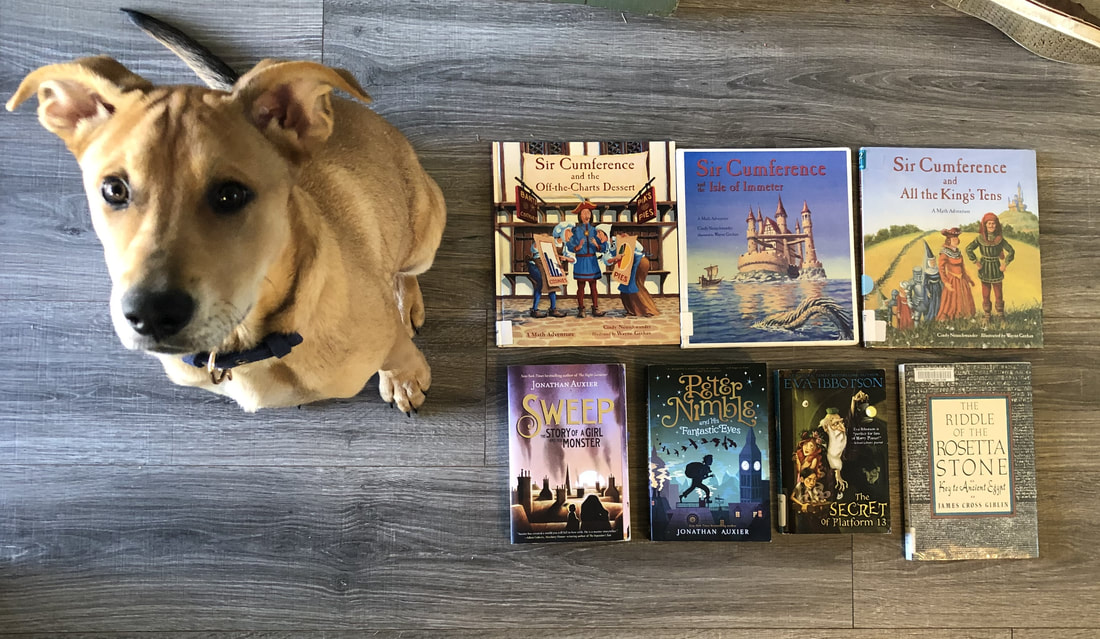|
Magic and fun can be the doorway into enjoying literature of all kinds. In this issue, I suggest three imaginative novels for kids, a set of math adventure stories for younger kids, and a peek into the (magical?) past for readers of any age. Dive into history or fantasy worlds this spring as you choose literature for warming-up days.
Sweep by Jonathan Auxier tells the story of a chimney sweep girl and her somewhat unconventional friend. This novel for middle-grade readers shows the importance of love and sacrifice and demonstrates the powerful effect of putting others first. Probably most suited to 5th and 6th graders, but suitable for older middle schoolers too, or as a readaloud with younger children. A boy on the fast track to a permanent life of enslavement and forced crime is whisked away to bewildering adventures in Peter Nimble and His Fantastic Eyes, also by Jonathan Auxier. The story is peopled with odd beings (talking crows, a horse/cat/goat man) and odd places (a sea into which all messages-in-bottles eventually fall, a desert with no edges), but our hero navigates his quest with fervor and courage despite his looming impediment: he is blind. This book was enjoyed in our home by a fourth-grader, but it’s not too childish for avid middle school readers. If only all learning could be accomplished through children’s literature… but wait: can it? The Riddle of the Rosetta Stone by James Cross Giblin is an accessible telling of how the Rosetta Stone unlocked the secrets of ancient Egyptian language. While there is certainly much more to learn on the subject, readers of this book (adults or children) will find themselves feeling adequately informed about how the Stone was found, how it was deciphered, and even the rudiments of how hieroglyphs work. A worthy work for readers of any age! Each book in the Sir Cumference series by Cindy Neuschwander tells a knightly adventure that uses math to find the solution. Math puns abound with creative character names such as Lady Di of Ameter and their son, Radius, and places such as Angleland and the Isle of Immeter (visited by Radius’s cousin Per). The stories are funny, and do not require math skills to read, but expose students to mathematical ideas in the course of each tale. I prefer to take my magic seriously. This The Secret of Platform 13 by Eva Ibbotson, a magical tale for young readers, takes very little seriously. Though that isn’t my usual reading mood, I appreciated a number of things about this book. First, even though it’s silly from start to finish, it never adds unnecessary humor: no potty talk, nothing I’d feel uncomfortable reading aloud. Second, the silliness never affects the crisp line between good and wicked. The unsavory characters are funny, but only in their unlikableness. And the good characters, though humorous, do not lose their moral high ground amidst the humor. Third, I found the story predictable in its summary plot arc, but there was plenty to surprise me along the way.
0 Comments
|
curated by Brittany Mountz
English major and unsuspecting English educator at ALC Archives
May 2024
Categories |

 RSS Feed
RSS Feed